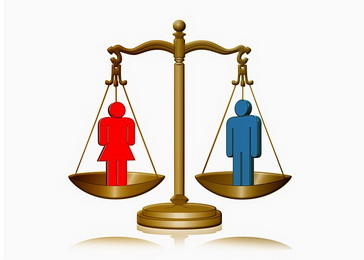 Even though, there are more women than men in the European Union this is not visible considering people occupying leadership positions in business, politics and civil society. Considering there is less than a year until the EU elections, Women Enablers Change Agent Network – WECAN wants to change that. This is why, on 19 June, they are launching a campaign called “Yes, we can” advocating for more women in leadership positions within EU institutions and private companies.
Even though, there are more women than men in the European Union this is not visible considering people occupying leadership positions in business, politics and civil society. Considering there is less than a year until the EU elections, Women Enablers Change Agent Network – WECAN wants to change that. This is why, on 19 June, they are launching a campaign called “Yes, we can” advocating for more women in leadership positions within EU institutions and private companies.
According to the Network, women constitute 51% of the EU population, and while there have been some advances, Europe has plenty left to do with regard to gender equality. Their goal is to achieve an “irreversible breakthrough” in the area of gender equality.
With the European Parliament elections fast approaching, women empowerment should be one of the main campaign topics along with immigration, security and post-Brexit EU.
At stake in the European campaign are three leadership roles in main EU institutions, they are all currently run by men, and they are up for election in 2019. Those institutions are the European Parliament, the European Commission, and the European Council.
Since EU is simultaneously negotiating its first post-Brexit multi-annual budget, the WECAN initiative can influence how Europe determines its spending priorities and encourage the role of women in the economy.
The boards of the largest listed companies in the EU are dominated by men, while, according to data from the European Institute for Gender Equality (EIGE) only a quarter of board members are women. According to this criterion, France is performing the best, while Estonia, Malta, and Cyprus are falling behind the most.
The situation is not better in European institutions. Even though the number of senior female officials in the EU bureaucracy has almost doubled since 2004, according to EIGE this is still just around 30%.
In the current European Commission, whose term will be done at the end of October 2019, only nine out of 28 commissioners are women. EIGE data show that the number of female ministers in EU national governments is even lower – only 29% of ministers are women, the data exclude the Spanish Government. Before Spain, Sweden had the largest number of female ministers in their government – 52%. On the opposite side of the spectrum is the Hungarian government with only one female minister – a minister without portfolio.
Taken from: www.euractiv.rs
 Government of the Republic of Serbia
Government of the Republic of Serbia















 pdf [271 KB]
pdf [271 KB]
Leave a Comment